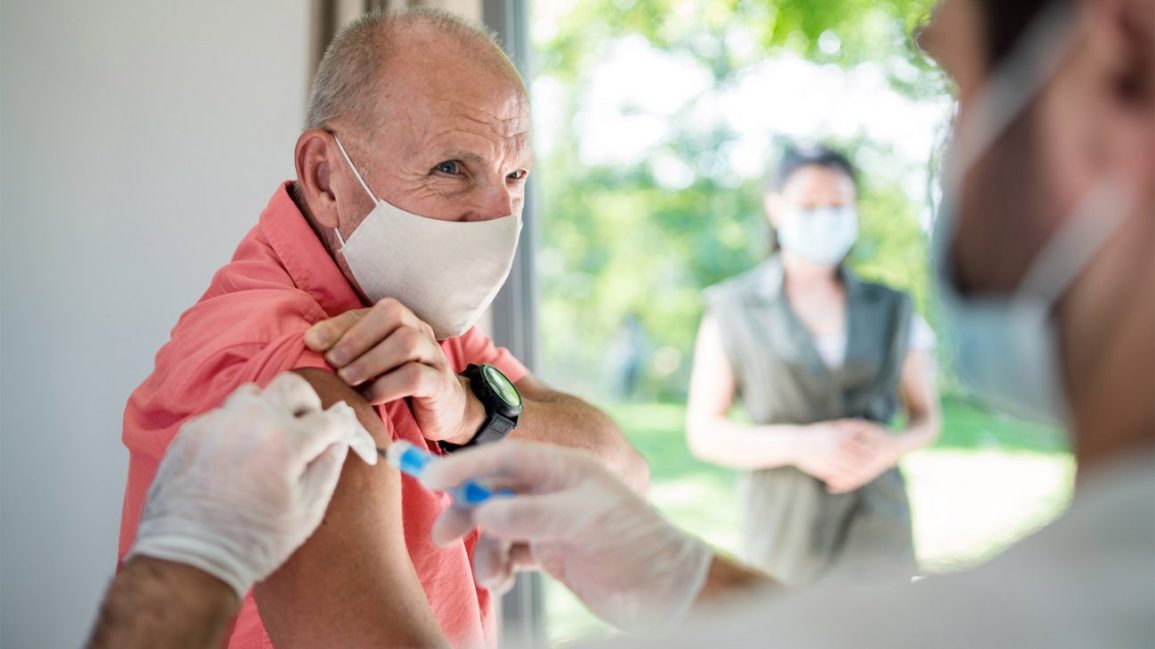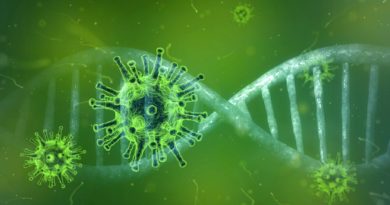No, COVID-19 Vaccines Do Not Cause New Coronavirus Variants
 Share on Pinterest
Share on Pinterest- Dubious claims that vaccines are causing new variants of the novel coronavirus are spreading on social media.
- These false reports have increased after French virologist Luc Montagnier was reported to have made the same claim in an interview.
- However, scientific evidence shows the opposite is true.
- Medical experts say virus mutations occur randomly and independently of vaccination.
- In addition, vaccines can play a role in squashing the variants.
False stories that vaccines are responsible for creating the new SARS-CoV-2 variants began rapidly spreading online after French virologist Luc Montagnier was reported to have made the claim in a recent interview for a documentary called “Hold-Up.”
In a video clip of the interview circulating on sites like Facebook, Montagnier claims that the novel coronavirus does not die when faced with the antibodies that are produced by the vaccines. Instead, it finds “another solution,” and that solution is the variants.
Montagnier, who co-won the Nobel Prize in Medicine for identifying HIV, expanded on his claim further, saying, “You see it in each country; it’s the same: The curve of vaccinations is followed by the curve of deaths.”
However, other medical experts say Montagnier is wrong and that the science shows the opposite to be true.
Peter Stoilov, PhD, an associate professor of biochemistry who is leading the SARS-CoV-2 variant sequencing efforts in West Virginia, described Montagnier’s argument as “completely bonkers.”
“The fact on which he bases his argument is that mutations can change epitopes that the immune system has learned from the vaccination, and this gives some selective advantage to the virus. Consequently, in his mind, this would ‘create’ new, more dangerous variants,” he said.
However, Stoilov pointed out that “selection does not cause new variants to emerge; it merely selects some of them.”
“Mutations and variants occur randomly and independently of vaccination or any other selection process. In fact, they may precede selection by years or millennia,” Stoilov said.
He further explained that the mutations defining the current SARS-CoV-2 variants of concern emerged before vaccines were created or became widely available.
He added that they emerged in multiple independent unvaccinated individuals from across the globe, and they continue to reoccur randomly in unrelated lineages of the virus.
Stoilov said it’s a well-established fact that selection does not cause mutations.
“The facts that Dr. Montagnier ignores are that, while vaccination may select for some variants, it is still effective at suppressing them and the overall effect is a dramatic reduction of infections and a milder disease when the virus manages to break through the vaccine,” he said.
Stoilov said that Montagnier is not only mistaking correlation for causation with his claim, but that he isn’t even using a viable correlation to make the argument.
“The variants of concern frequency increase correlates to some degree to the onset of vaccination. But, this is the same as claiming that pirates are causing global warming. This correlation merely reflects the similar times it took for the virus to mutate and spread, and for us to develop the vaccines and start applying them,” he said.
If vaccines were creating new dangerous variants, then Stoilov said we would see proportionately more new variants emerging over time among vaccinated populations than with unvaccinated parts of the world.
There would also be a lot more diversity among the virus variants in countries with high vaccination rates, and increased disease spread and mortality among vaccinated people.
“We see nothing of that. In fact, we see exactly the opposite,” Stoilov said. “In places with high vaccination rates, the case numbers and mortality are dropping; virus diversity is limited to few (one to three) variants; and, so far, no new variants are emerging among vaccinated populations.”
Finally, Stoilov pointed out that although we tend to give a lot of credence to the authority of Nobel laureates, this does not necessarily mean they always know what they are talking about.
One example he pointed to was Kary Mullis, who won the Nobel Prize for co-inventing the polymerase chain reaction (PCR) technique.
Mullis went on to deny that HIV causes AIDS, which was untrue. Yet, former South African President Thabo Mbeki followed his advice by rejecting antiretroviral therapy. This mistake in trusting Mullis’ expert status ended up costing hundreds of thousands of lives.
Kartik Chandran, PhD, professor in the department of microbiology and immunology, Harold and Muriel Block Faculty Scholar in Virology at Albert Einstein College of Medicine, explained that the virus is “always mutating.”
This is because it’s “sloppy” at copying its own genetic information and makes errors every time it makes a copy.
“These random errors are the mutations, and it follows that the more copies the virus makes, the more mutations it acquires,” he said.
Chandran explained that most of these mutations either do nothing or are harmful to the virus because they hobble it.
“Every once in a while though, a mutant has some kind of advantage, either in being able to grow in a person, spread from person to person, and/or escape antibodies the person is making. Such a mutant could successfully out-compete other viruses in the population and become a variant of concern,” he said.
Chandran also said it’s important to note that it’s largely the immune system of unvaccinated people that seems to be driving the selection of variants that can escape some antibodies.
“Many of the vaccines are so effective at mounting an immune response that they can squash most of the variants that are currently circulating,” he said.
He added that if we could vaccinate most people, the probability of viruses jumping from one person to another person would be greatly reduced.
“It’s sort of like a frog jumping from lily pad to lily pad in a pond. The vaccine essentially removes lily pads, which means that the virus has to leapfrog larger distances and is more likely to fall into the water,” he said.


